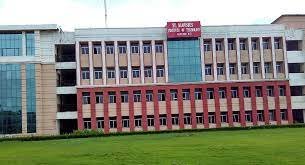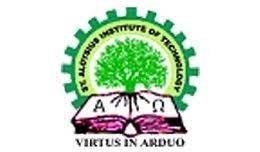Graduates can work as open-source developers, Linux administrators, software engineers, or open standards advocates. Job opportunities extend to various sectors, including tech companies, government organizations, and nonprofits promoting open-source solutions.
Career and Job Opportunities after Completing B.Tech Open Source And Open Standards
A Bachelor of Technology (B.Tech) in Open Source and Open Standards is a unique program that focuses on the principles and practices of open-source software development and open technology standards. Graduates of this program are well-equipped to pursue careers that involve the development, adoption, and advocacy of open-source solutions and standards. Below, we explore the career and job opportunities available to graduates in this field.
Overview of B.Tech in Open Source and Open Standards
This program combines technical knowledge with an understanding of the open-source software development model, open standards, and their applications across various industries. Students study subjects related to programming, software development, open-source licensing, open data, and interoperability. The curriculum typically includes courses in:
1. Open Source Software Development: Learning about open-source development practices, version control systems, and collaboration tools.
2. Programming Languages: Gaining proficiency in programming languages commonly used in open-source development, such as Python, Java, or JavaScript.
3. Open Standards and Protocols: Understanding the importance of open standards and their role in ensuring interoperability and data exchange.
4. Open Data and Data Governance: Exploring the concepts of open data, data sharing, and data governance in various sectors, including government and healthcare.
5. Open Source Licensing: Studying open-source licenses, compliance, and intellectual property rights in open-source projects.
6. Community Engagement: Learning how to participate in and contribute to open-source communities and projects.
B.Tech Open Source And Open Standards Career Opportunities
Graduates with a B.Tech in Open Source and Open Standards have a wide range of career options in industries that value open technology solutions and standards. Some of the key career paths include:1. Open Source Software Developer: Contribute to open-source projects, develop software, and collaborate with the global open-source community.
2. Open Source Project Manager: Lead and coordinate open-source development efforts, ensuring project goals and timelines are met.
3. Open Source Advocate: Promote the adoption of open-source solutions and advocate for open standards within organizations and industries.
4. Open Data Specialist: Work with government agencies or organizations to manage and share open data resources for public benefit.
5. Interoperability Engineer: Focus on ensuring that systems and applications adhere to open standards, enabling seamless data exchange and integration.
6. Data Governance Specialist: Manage data governance initiatives, ensuring that data is collected, stored, and shared in compliance with open standards and best practices.
7. Technical Writer: Create documentation and guides for open-source projects, making it easier for users and developers to understand and contribute.
B.Tech Open Source And Open Standards Job Opportunities
Job opportunities for graduates in Open Source and Open Standards can be found in various sectors, including:• Technology Companies: Work for companies that develop and provide open-source software and solutions, such as Linux distributions, web development frameworks, and content management systems.
• Government and Public Sector: Join government agencies and organizations involved in open data initiatives, digital governance, and open-source adoption in public services.
• Nonprofits and Foundations: Many nonprofits and foundations focus on open-source development, and they often hire professionals to manage and support their open-source projects.
• Academic and Research Institutions: Contribute to research projects, educational programs, and initiatives that promote open-source and open standards in academia.
• Healthcare: Work in healthcare IT, ensuring that healthcare systems and data exchange standards comply with open standards for interoperability.
• Consulting Firms: Provide consulting services to organizations looking to adopt open-source solutions or implement open standards.
• Data-driven Companies: Industries that rely heavily on data, such as finance, marketing, and e-commerce, often seek professionals with expertise in open data and open standards.
• Startups: Join startup companies that leverage open-source technologies to develop innovative solutions in various domains.
 4 Years
4 Years
 Under Graduate
Under Graduate
 Engineering
Engineering
 Full Time
Full Time



 back
back

